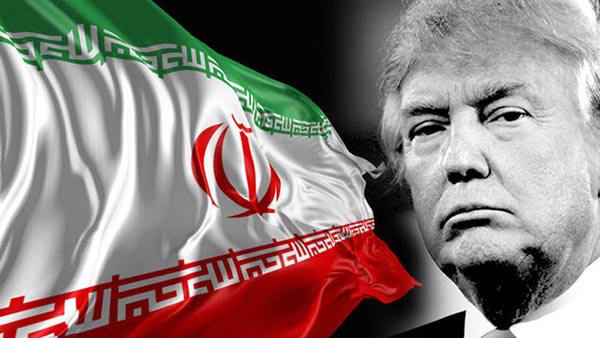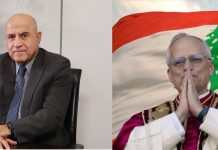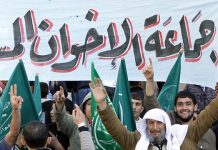Iran’s ‘Malign Activities’ and the Need to Put the Spotlight on its Actions
Dennis Ross/Asharq Al Awsat/November 11/17
President Donald Trump pulled no punches about Iran when he outlined the pillars that would guide his administration’s policy toward the country. He recounted Iran’s aggressive, threatening behavior over time and declared that the United States would counter Iran’s de-stabilizing activities in the region. Left unsaid was how his administration would do so.
A quick survey of the region validates the need to counter what Iran is doing in the region. Saad Hariri resigned as Lebanon’s prime minister, citing fears of an assassination plot against him. In announcing his decision, he accused Iran of sowing “sedition, devastation and destruction in any place it settles in.” He charged it with interfering with “the affairs of Arab nations” and referred to Hezbollah as a “state within a state” in Lebanon.
In Yemen, the Houthis are firing rockets at Saudi cities, including Riyadh, with increasing frequency—and the rockets are supplied by Iran. Anti-ship rockets are also being provided by Iran to threaten shipping lanes in the Bab el-Mandeb straits.
In Iraq, Qassem Soleimani, the head of Iran’s Quds Forces, the action-arm of the Revolutionary Guard, was quick to take advantage of the conflict between the central government and the Kurdish Regional Government, pushing the Popular Mobilization Units, who are materially supported and guided by the Iranians, to force the Peshmerga to retreat from Kirkuk even as they keep the crisis going.
To be sure, the Iranians don’t create these conflicts but are quick to exploit them, using Shi’ite militia proxies from as far away as Pakistan and Afghanistan. Nowhere is this more true than in Syria. It is not just that the Iranians and their proxies have helped to secure the Assad regime; they are actively now trying to fill the vacuum that is going to be left by the defeat of ISIS—a defeat that has in the main not been inflicted by them. While the US has concentrated on defeating ISIS, Iran is focused on the day after and is actively creating facts on the ground and even working to change the demography by moving Shi’ites into Sunni-majority areas.
Iran’s reach, especially with Hezbollah, extends everywhere in Syria. Go to the Golan Heights and one can see, as I just did, the hill-top where the Quds Force and Hezbollah have established forward observation posts peering into Israel. It is only a matter of time before they will turn their attention to the border with Jordan. The Iranians are being quite purposeful in Syria and in time will control Syria’s border with Iraq, Jordan, Lebanon and Israel. Will they do so with Syria’s Turkish border? If it means cutting a deal with Turkey to prevent an autonomous Kurdish region, one can bet this, too, will happen.
So the Trump administration is right to speak of Iran’s “malign activities.” The problem at this point is that the policy seems to be tough in tone and rhetoric but largely limited to words. True, there are increasing designations for sanctions of entities tied to the Revolutionary Guards and Hezbollah. While sanctions are surely one instrument of policy, their application is largely a continuation of the Obama approach. Of course, the Obama administration was also willing to talk to the Iranians. Its engagement policy was designed to gain international support for pressure on Iran as well as for any agreements that might emerge from the diplomacy.
President Obama hoped that the nuclear deal, the JCPOA, would not only limit the Iranian nuclear program and forestall its move toward nuclear weapons, but build the Iranian stake in good behavior. By re-integrating the Iranians into the international financial system, the Obama administration reasoned that the weight and influence of the pragmatists in the Iranian leadership would grow and Iran would gradually normalize with their neighbors and the world—at least that was the hope. In the long-run such a possibility might exist; in the short-run, however, it was always unlikely as Ali Khamenei, the Supreme Leader, was bound to want to prove that he had not forsaken his “resistance” ideology by permitting the JCPOA to be concluded; indeed, for Khamenei, by becoming more aggressive in the region, he could show that his deal with the United States and the other members of the P5+1 reflected no softening of his world view and the belief system that underpins Iran.
The challenge from Iran is unmistakable. The policy must be to raise the costs to the Iranians. The Obama administration was not wrong that there are splits in the Iranian leadership. In fact, there are those pragmatists around Rouhani who prefer normalization with the outside world, much as the Iranian public seeks, not the resistance economy that Khamenei so often calls for but a modern, open and growing one. Every time they get a chance to vote, Iranians clearly prefer normalization on the outside and liberalization on the inside.
Like many, I believe that Obama could have preserved the leverage that brought the Iranians to the negotiating table more effectively during the talks to produce a better outcome. But if the Trump administration wants to deal with some of the flaws of the JCPOA—the end of key limitations on enrichment and reprocessing in 13 years and ongoing ballistic missile testing—it needs to be sure it has international partners. And, the same is true for dealing with Iran’s behavior in the region.
Here again the logic should be to raise the costs to the Iranians while leaving them a way out. That starts with developing an international consensus by putting the spotlight on what Iran is doing everywhere in the region. Iran is not about stability but expansion. And, the US must lead, not with words but with action.
I believe containing Iran in Syria and not permitting the Shi’ite militias to expand further there is essential for showing the Iranian regime, we will now impose limits. There is every reason to talk directly with the Iranians and make clear what we can accept and what we cannot. Certainly, we should do the same with the Russians, conveying unmistakably that if the expansion continues we will use our air power to stop the spread of the Shi’ite militias.
Presently, in the Trump administration, there continues to be a debate about how to counter the Iranians. Some seem prepared to concede Syria to Russia and let them contain the Iranians while the US does more to counter the Iranians in Iraq. There are two problems with this approach: first, the Russians have little incentive to play this role, particularly as long as a low level insurgency continues in Syria and the Shi’ite militias represent their boots on the ground. And, second, Iran may have more leverage in Iraq than we do.
Either approach requires something from the administration other than words and the threat of sanctions, particularly if the sanctions are going to be largely unilateral and not multilateral.
As it is, Trump is unlikely to get the Europeans to join the sanctions unless he addresses their concerns about not renegotiating the JCPOA or makes clear that the price for him not walking away from the JCPOA is European responsiveness on sanctions against Iran’s de-stabilizing regional actions. Even this may not be sufficient to put the necessary pressure on the Iranians unless the Trump administration is prepared to use tailored air power to raise the costs to the Iranians and the Shi’ite militias in Syria and also engage the Iranians. Is it prepared to do so? If it is not, if President Trump is not prepared to back diplomacy with coercion and contain the Iranians in Syria or Iraq, the gap between his stated policy and reality will only widen.
أنشطة إيران الخبيثة وضرورة تسليط الأضواء على ما تقوم به
دنيس روس/الشرق الأوسط/11 تشرين الثاني/17
لم يتردد الرئيس الأميركي دونالد ترمب عندما لخّص الركائز التي ستوجه سياسة إدارته تجاه الجمهورية الإسلامية الإيرانية. تحدث عن سلوك إيران العدواني الذي شكل تهديداً عبر الزمن، وأعلن أن الولايات المتحدة ستواجه أنشطة إيران المزعزعة للاستقرار في المنطقة؛ إلا أنه لم يذكر كيف ستفعل إدارته ذلك.
وتؤكد دراسة سريعة للأحداث ضرورة التصدي لما تقوم به إيران في المنطقة. فقد استقال سعد الحريري من منصب رئيس الوزراء اللبناني بسبب مخاوف من مؤامرة اغتيال تحاك ضده. وأثناء إعلانه لقراره، اتهم الحريري إيران بزرع «الفتنة والدمار والخراب في أي مكان تحل فيه». واتهمها أيضاً بالتدخل في «شؤون الدول العربية»، وأشار إلى أن «حزب الله» بات كدولة داخل الدولة في لبنان.
أما في اليمن، فيقوم الحوثيون بإطلاق الصواريخ بعيدة المدى – التي تزودهم بها إيران – على المدن السعودية، بما فيها الرياض. كما تقدم إيران للحوثيين صواريخ مضادة للسفن لتهديد مضيق باب المندب.
وفي العراق، سارع قاسم سليماني، قائد «فيلق القدس»، وهو الذراع العسكرية للحرس الثوري الإيراني، إلى الاستفادة من الصراع بين الحكومة المركزية وحكومة إقليم كردستان، مما دفع وحدات «الحشد الشعبي» التي يدعمها الإيرانيون إلى إجبار قوات البيشمركة على الانسحاب من كركوك حتى مع استمرار الأزمة.
ومن المؤكد أن الإيرانيين لا يبدأون هذه الصراعات، إلا أنهم يسارعون إلى استغلالها من خلال الاستعانة بوكلائهم من الميليشيات الشيعية حتى في باكستان وأفغانستان. وثبتت واقعية هذا الأمر في سوريا على وجه الخصوص. فلم يكتفِ الإيرانيون ووكلاؤهم بالمساعدة في حماية نظام الأسد، بل ما زالوا يحاولون ملء الفراغ الذي ستخلفه هزيمة تنظيم داعش؛ الهزيمة التي لم يكن لهم أي يد فيها.
وفي حين تركز الولايات المتحدة على هزيمة «داعش»، تقوم إيران بالتخطيط لما بعد هذه الهزيمة، وتعمل بنشاط على خلق حقائق على الأرض، بل وتعمل على تغيير الديموغرافيا عن طريق نقل الشيعة إلى المناطق ذات الأغلبية السنية.
إن انتشار إيران، خصوصاً مع «حزب الله»، يمتد إلى كل المناطق السورية. اذهب إلى هضبة الجولان، ويمكن لأي شخص أن يرى، كما رأيت بنفسي، قمة الهضبة، حيث أقام «فيلق القدس» و«حزب الله» مراكز مراقبة باتجاه إسرائيل. إنها مسألة وقت فقط، قبل أن توجه هذه القوات انتباهها إلى الحدود مع الأردن. فالإيرانيون هادفون تماماً في سوريا، ومع مرور الوقت ستتحكم إيران في الحدود السورية مع العراق والأردن ولبنان وإسرائيل.
هل سيقومون بذلك مع الحدود التركية السورية؟ إذا كان ذلك يعني التوصل إلى اتفاق مع تركيا لمنع إنشاء منطقة كردية مستقلة، فيمكن المراهنة على ذلك أيضاً.
لذلك، فإن إدارة ترمب لها الحق في التكلم عن «الأنشطة الخبيثة» التي تمارسها إيران. والمشكلة في هذه المرحلة هي أن السياسة تبدو قاسية في اللهجة والخطاب؛ لكنها تقتصر إلى حد كبير على الكلمات. والصحيح أن هناك تسميات متزايدة للعقوبات المفروضة على كيانات مرتبطة بالحرس الثوري و«حزب الله». وفي حين أن العقوبات هي بالتأكيد أداة للسياسة، فإن تطبيقها هو إلى حد كبير استمرارٌ لنهج أوباما. وكانت إدارة أوباما مستعدة بالطبع أيضاً للتحدث إلى الإيرانيين. وتهدف سياسة المشاركة لتلك الإدارة إلى كسب الدعم الدولي للضغط على إيران، وكذلك على أي اتفاقات قد تنشأ عن الدبلوماسية.
وأعرب الرئيس السابق أوباما عن أمله في أن الاتفاق النووي، أي خطة العمل الشاملة المشتركة، لن تحد فقط من البرنامج النووي الإيراني وتحول دون تطوره ليشمل الأسلحة النووية، بل تحسن أيضاً من حسن سلوك إيران.
ومن خلال إعادة دمج الإيرانيين في النظام المالي الدولي، فكرت إدارة أوباما في أن وزن ونفوذ البراغماتيين في القيادة الإيرانية سينمو، وأن الجمهورية الإسلامية ستطبّع تدريجياً مع جيرانها والعالم، على الأقل هذا ما كانت تأمل الإدارة حدوثه. وعلى المدى الطويل قد يحصل ذلك فعلياً، ولكن على المدى القصير، كان ذلك دائماً غير مرجح، حيث إن المرشد الأعلى علي خامنئي كان يريد أن يثبت أنه لم يتخل عن آيديولوجيته «المقاومة» من خلال السماح بإبرام خطة العمل الشاملة المشتركة. وبالفعل، ومن خلال الأعمال العدوانية التي يقوم بها نظامه في المنطقة يمكن لخامنئي أن يثبت أن الصفقة التي أبرمها مع الولايات المتحدة والأعضاء الآخرين من دول الـ«5+1» لا تعكس أي تخفيف في وجهة نظره العالمية، ونظام الاعتقاد الذي يدعم الجمهورية الإسلامية.
والتحدي من إيران لا لبس فيه. ويجب أن تكون السياسة عبارة عن رفع التكاليف على الإيرانيين. ولم تكن إدارة أوباما مخطئة حول وجود انقسامات في القيادة الإيرانية. وفي الواقع، يوجد براغماتيون حول روحاني يفضلون التطبيع مع العالم الخارجي، مثلما يسعى الشعب الإيراني إلى تحقيق اقتصاد حديث ومفتوح ومتنامٍ، بدلاً من الاقتصاد المقاوم الذي يدعو إليه خامنئي في كثيرٍ من الأحيان. وفي كل مرة يحصل الإيرانيون فيها على فرصة للتصويت، يفضل الإيرانيون التطبيع مع الخارج والتحرر في الداخل.
ما قامت به إدارة أوباما من خلال رفع التكاليف التي يتحملها الإيرانيون في حال متابعة برنامجهم النووي كان خياراً صحيحاً، حتى وإن تركت لهم وسيلة دبلوماسية للتملص منه.
ومثل كثيرين، أعتقد أن أوباما كان يستطيع المحافظة على القدرة التي جلبت الإيرانيين إلى طاولة المفاوضات بشكل أكثر فعالية خلال المحادثات، لتحقيق نتيجة أفضل؛ لكن إذا أرادت إدارة ترمب التعامل مع بعض العيوب في خطة العمل الشاملة المشتركة – نهاية القيود الرئيسية على التخصيب وإعادة المعالجة في 13 عاماً والاختبار الحالي للصواريخ الباليستية – فيجب أن تكون على يقين من أن لديها شركاء دوليين. وينطبق الأمر نفسه على التعامل مع سلوك إيران في المنطقة.
ومن المنطقي في هذه الحالة رفع التكاليف على الإيرانيين، مع ترك وسيلة لهم للخروج. ويبدأ ذلك بتطوير توافق دولي في الآراء، من خلال تسليط الأضواء على ما تقوم به إيران في كل مكان في المنطقة. فإيران لا ترتبط بالاستقرار بل بالتوسع. ويجب على الولايات المتحدة أن تقود، ليس بالكلمات؛ لكن بالتنفيذ.
وأعتقد أنه من الضروري احتواء إيران في سوريا، وعدم السماح للميليشيات الشيعية بالتوسع أكثر، لنظهر للنظام الإيراني أننا سنفرض حدوداً لأفعالهم. كل الأسباب تشير إلى ضرورة التحدث مباشرة مع الإيرانيين وإيضاح ما يمكننا وما لا يمكننا قبوله. ومن المؤكد أننا يجب أن نفعل الشيء نفسه مع الروس، ونقول لهم بوضوح إنه إذا استمر التوسع، سنستخدم قواتنا الجوية لوقف انتشار الميليشيات الشيعية.
وفي الوقت الحاضر، لا يزال هناك نقاش داخل حلقة إدارة ترمب حول كيفية مواجهة الإيرانيين. ويبدو أن البعض مستعد للتنازل عن سوريا لروسيا، والسماح لهم باحتواء الإيرانيين، في حين أن الولايات المتحدة تفعل أكثر من ذلك لمواجهة الإيرانيين في العراق.
ويتضح أنه توجد مشكلتان مع هذا النهج؛ أولاً، الروس لديهم حافز ضئيل للعب هذا الدور، خصوصاً مع استمرار التمرد على مستوى ضعيف في سوريا، وأقدام الميليشيات الشيعية ثابتة على تلك الأرض. وثانياً، قد تمتلك إيران نفوذاً أكبر في العراق مقارنة بنفوذنا.
وكلا النهجين يتطلبان من الإدارة التنفيذ بدلاً من إطلاق الكلمات والتهديد بفرض جزاءات، خصوصاً إذا كانت الجزاءات ستكون أحادية الجانب إلى حد كبير وليست متعددة الأطراف. وكما هو الحال، من غير المرجح أن يستطيع ترمب إقناع الأوروبيين بالتوافق معه وفرض العقوبات، ما لم يعالج مخاوفهم بشأن عدم إعادة التفاوض على خطة العمل الشاملة المشتركة، أو يوضح أن ثمن عدم إعادة التفاوض على خطة العمل الشاملة المشتركة هو الاستجابة الأوروبية للعقوبات المفروضة على أفعال إيران المزعزعة للاستقرار في المنطقة.
وحتى هذا قد لا يكون كافياً للضغط اللازم على الإيرانيين، إلا إذا كانت إدارة ترمب مستعدة لاستخدام القوة الجوية المصممة خصيصاً لرفع التكاليف على الإيرانيين والميليشيات الشيعية في سوريا، وإشراك الإيرانيين أيضاً. هل هي مستعدة للقيام بذلك؟ إذا لم تكن مستعدة، وإذا لم يكن الرئيس ترمب مستعداً لدعم الدبلوماسية بالإكراه، واحتواء الإيرانيين في سوريا أو العراق، فإن الفجوة بين سياسته المعلنة والواقع ستتسع أكثر.
* خاص بـ «الشرق الأوسط»






















